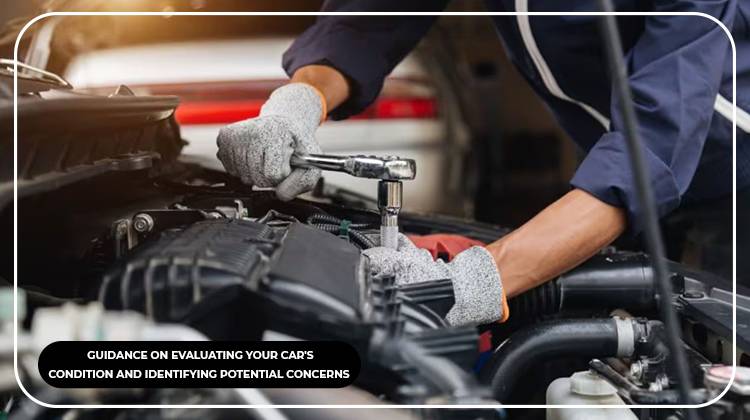Determining the Condition of Your Car: Guidance on Evaluating Your Car’s Condition and Identifying Potential Concerns
Introduction:
When it comes to assessing the condition of your car, it’s essential to have a clear understanding of its overall health and identify any potential concerns. Whether you’re preparing to sell your vehicle or simply want to ensure its reliability and safety, evaluating its condition is a crucial step. In this blog post, we will provide you with comprehensive guidance on how to evaluate your car’s condition effectively. By following these steps, you’ll gain valuable insights into your vehicle’s overall health and be able to address any potential issues.
Visual Inspection:
Begin by conducting a thorough visual inspection of your car’s exterior and interior. Pay close attention to the following areas:
Exterior:
Paint and body condition: Look for any scratches, dents, rust, or signs of damage. Minor imperfections can often be addressed, but significant damage may require professional repair.
Glass and mirrors: Check for cracks, chips, or damage on the windshield, windows, and side mirrors. Damaged glass should be repaired or replaced promptly.
Tires and wheels: Inspect the tires for tread wear, bulges, or uneven wear patterns. Check the condition of the wheels for any bends, cracks, or damage.
Interior:
Seats and upholstery: Assess the condition of the seats, including any signs of wear, stains, or tears. Check the functionality of seat adjustments and seat belts.
Controls and electronics: Test all controls, such as windows, locks, lights, air conditioning, infotainment systems, and other electronic features, to ensure they are working correctly.
Odors and cleanliness: Take note of any unusual odors inside the car, which may indicate underlying issues. Ensure the interior is clean and free from excessive dirt or debris.
Mechanical Evaluation:
Evaluate the mechanical components of your car to determine its overall health and performance. Consider the following aspects:
Engine: Start the engine and listen for any abnormal noises, such as knocking, rattling, or excessive vibrations. Pay attention to the engine’s responsiveness and smoothness.
Fluid levels: Check the levels and condition of essential fluids, including engine oil, coolant, brake fluid, power steering fluid, and transmission fluid. Low levels or dirty fluids may indicate maintenance or repair needs.
Brakes: Test the brakes for responsiveness, squeaking, or grinding noises. Check the brake pedal’s firmness and ensure there is no excessive vibration or pulling to one side when braking.
Suspension and steering: Assess the suspension system for any signs of wear or damage, such as squeaks, excessive bouncing, or uneven tire wear. Check the steering for smooth operation and responsiveness.
Documentation and Maintenance History:
Reviewing the documentation and maintenance history of your car can provide valuable insights into its past care and potential concerns. Consider the following:
Service records: Gather maintenance records, including routine services, oil changes, fluid top-ups, and scheduled inspections. These records demonstrate proper maintenance and care.
Repair history: Note any major repairs or component replacements that have been performed on the vehicle. This information helps identify any recurring issues or potential concerns.
Conclusion:
Evaluating the condition of your car is crucial for ensuring its reliability, safety, and value. By conducting a thorough visual inspection, evaluating the mechanical components, and reviewing documentation and maintenance history, you’ll gain a comprehensive understanding of your vehicle’s condition. Addressing any potential concerns promptly will help maintain your car’s performance and potentially increase its resale value. Regular evaluations will also contribute to your overall driving experience by ensuring a safe and reliable vehicle.
Remember, if you’re unsure about any aspect of evaluating your car’s condition, it’s always a good idea to consult with a qualified mechanic or automotive professional for a more in-depth assessment.

